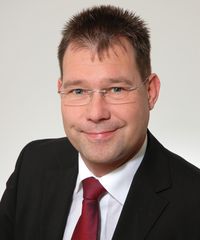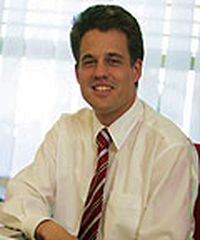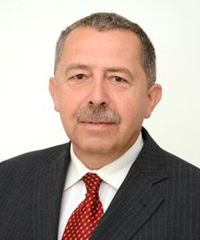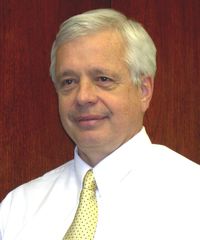
Prof. Paul Allaire
Chief Technical Officer, Rotor Bearing Solutions International, USA Also, Mac Wade Professor, University of Virginia, RetiredMu Synthesis Control of High Speed Flexible Rotor on Active Magnetic Bearings Simulating High Pressure Compressors with Aerodynamic Cross Coupling
Paul Allaire, Simon Mushi, Zongli Lin
Many industrial companies are adopting magnetic bearings for high speed compressors at this time. A flexible rotor test rig of approximately 1.2 m in length was developed with four active magnetic radial bearings. It was employed to evaluate the control of aerodynamic cross coupling stiffness in the center of the machine.

Prof. Hannes Bleuler
Director Robotic Systems Lab, EPFL Lausanne, SwitzerlandOverview of the various types of magnetic bearings and their respective potential for applications
We all know many very different types of AMBs such as “active”, “passive”, “electromagnetic”, “electrodynamic” etc. In this keynote, I propose to briefly review the known basic configurations and then discuss why certain types are very common, while others are either nearly forgotten or seem uninteresting for practical applications. More importantly, I will try to identify a few types which might have as yet unexploited potential for future applications.

Matthias Kroll
CEO LEViTEC GmbH, GermanyElectric Drives Systems with Active Magnetic Bearings in Industrial Applications: Possibilities and Challenges
High speed drive systems will be playing an even more important role in industrial applications. They are used in the chemical and food industry, as well as in power generation and in machine tools. The drive systems in the mentioned applications have to meet high standards. Furthermore, there is an increasing demand for reliability and productivity of machines and plants, which also includes high power density and efficiency. Due to the high requirements, active magnetic bearings are increasingly used. To achieve the best technical and economical solution for the customer, it is necessary to consider the strong interaction between the system components as well as manufacturing aspects. This provides the best solution with significant benefits for the end user.

Florian Lösch
CEO MECOS AGIndustrialisation of Active Magnetic Bearing Technology
This keynote describes the development of Magnetic Bearings from their origin as a highly innovative concept to an industrial product, a path that was strongly influenced by technological innovation as well as non-technological boundary constraints. Starting from the pilot applications, key scientific and technological advancements that paved the way for large scale application in industrial products are highlighted. It is shown that besides the technical aspects also complex economic factors must be taken into consideration if one is to understand the technology’s industrial evolution to date and to make predictions for the future.

Jiri Sloupensky
Vice President of Product Research, Rieter CZ s.r.o., Czech RepublicMagnetic Bearings: Application to High Speed Textile Processing
This keynote describes the history and actual status of a successful mechatronic industry- academia project, related to the rotor spinning textile process. This textile technology was invented in Czech Republic in 1960’s and brought a revolution to the yarn spinning industry. The key factor for the productivity of rotor spinning machines is the speed of the spinning rotor. Conventional machines are equipped with different types of mechanical bearings with limited lifetime due to the heavy duty operation. The target of this project was to develop new concept of single-drive rotor spinning unit magnetic bearing and at the same time use as many synergies as possible, given by this new concept, also for improving the textile process.

Michael K. Swann
General Manager, Waukesha Magnetic Bearings, USAIndustrialisation Trends for Active Magnetic Bearings in the Turbomachinery Industry
As the adoption rate of active magnetic bearings in the turbomachinery industry continues to increase, leading magnetic bearing suppliers have been meeting customer expectations by transforming what was once a university laboratory development into a well accepted industrial product. In turbomachinery applications for oil & gas and power generation this has meant the globalisation of not only sales and services functions, but also key project engineering, product development and manufacturing functions as well. This talk briefly examines the history of these trends up through the present day and what one supplier sees as the future of this industry.
